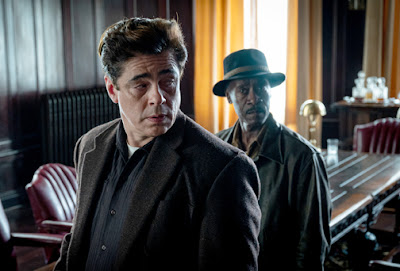Italian writer/director Saverio Costanzo’s period drama is a wickedly uneasy character piece, until the story’s key character succumbs — in the third act — to a regrettable case of The Stupids.
That aside, the acting is solid throughout, and this piece also is an affectionate nod to Italy’s post-World War II filmmaking period, when Rome became know as “Hollywood on the Tiber.” The city attracted many international productions — particularly from the United States — to its famed Cinecittà studios.
Costanzo opens on a grim, black-and-white sequence toward the end of the war. This 5-minute prologue turns out to be a film, The Sacrifice, being watched in a crowded movie theater by two sisters — vivacious, gorgeous Iris (Sofia Panizzi) and younger, mousy Mimosa (Rebecca Antonaci) — and their mother Elvira (Carmen Pommella). After the film concludes, they debate the merits of lush Hollywood artifice as opposed to Italian cinema’s then-rising neorealism.
Everybody agrees about the allure of the film’s Italian star, Alida Valli (Alba Rohrwacher) and her American co-star, Sean Lockwood (Joe Keery).
As the trio departs the theater, they’re intercepted by a smarmy talent scout seeking extras for a sword-and-sandal epic current being filmed at Cinecittà; drawn by Iris’ allure, he insists that she try out. Elvira and her husband Rinaldo (Enzo Casertano) give their permission, and the two young women duly present themselves at the studio the following day, with Mimosa acting as chaperone after their mother is left at the gate.
As a sidebar, Elvira and Rinaldo apparently expect Iris to marry well, given her good looks and personality, whereas they’ve “arranged” for Mimosa to wed a working-class policeman. (We meet him briefly. It’s a fate worse than death.)
Iris nails the audition, despite being asked to remove her sweater; the more prim Mimosa balks at that request and thus is dismissed. While subsequently searching for her sister, Mimosa wanders the lot. She first stumbles into a screening room, where studio execs watch footage for a news documentary about the recent discovery of a dead aspiring young actress, Wilma Montesi, on the Capocotta beach adjacent to a lavish estate owned by Ugo Montagna, who had hosted a party the previous evening.
(Costanzo is referencing the actual murder of 21-year-old Montesi, which places this film’s events in 1953.)











